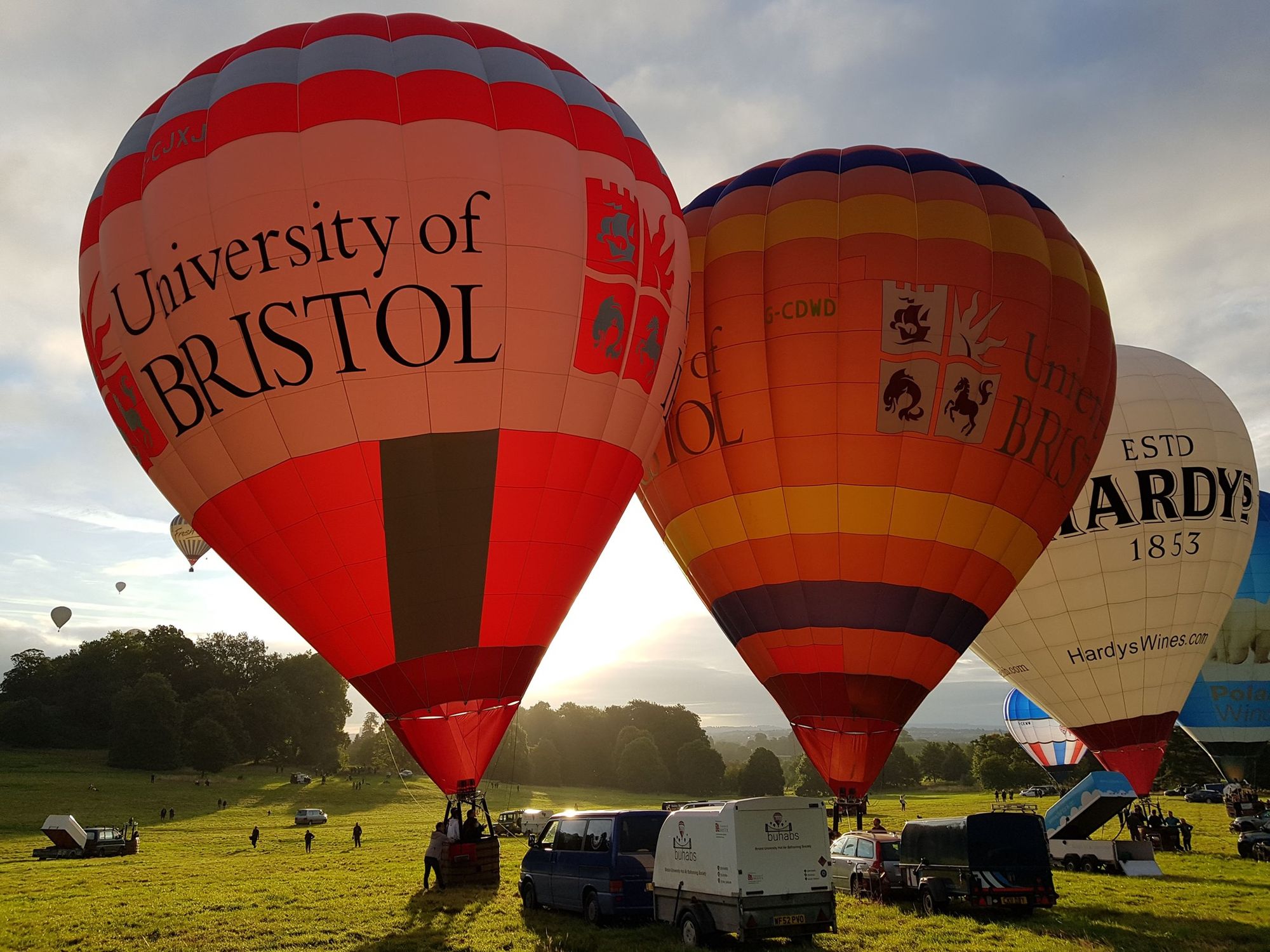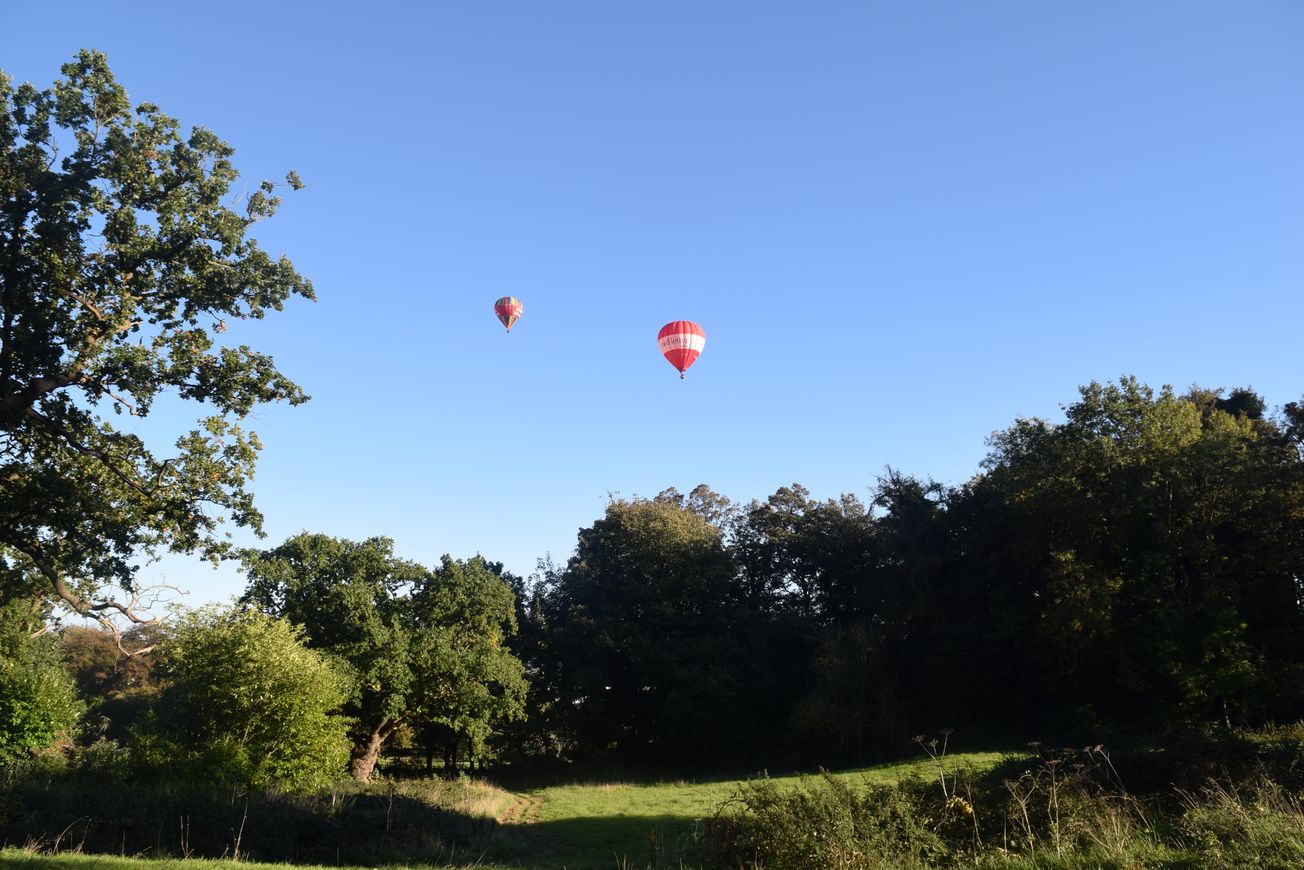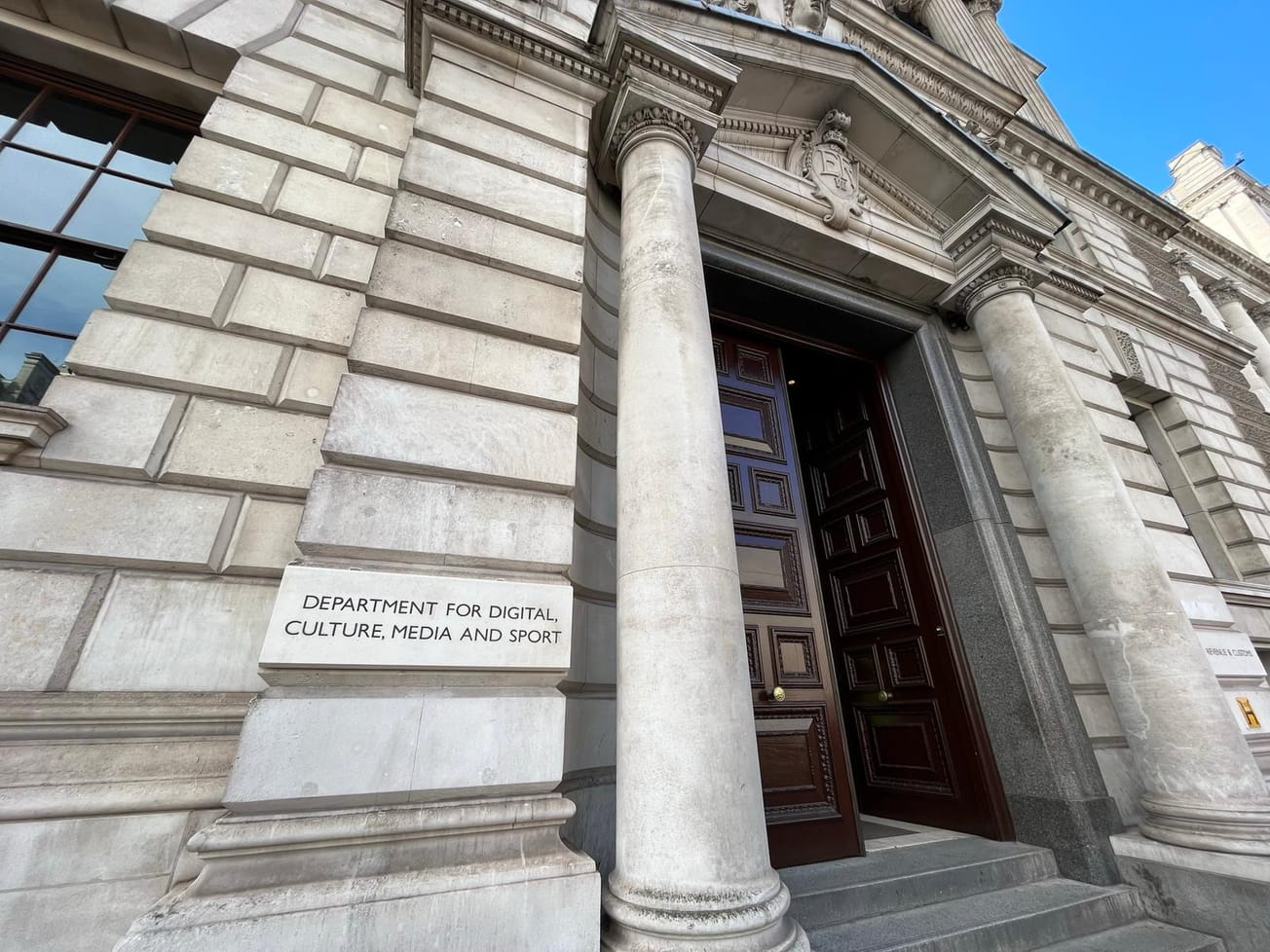By Louis O'Geran, Third Year Social Policy with Politics
Over the past two weeks, hot air balloons have taken off from locations across the city and the skies have once again been filled with those iconic splashes of colour. If you’ve been in Bristol over the past fortnight, you’ve undoubtedly seen the balloons from your window, garden or local park - but how did the balloon become a symbol of Bristol’s identity? And how has the festival adapted to the post-pandemic era?

Bristol’s first Balloon Fiesta took place in 1979, but our story begins in the 1960’s when Scottish aeronautical engineer Don Cameron moved to Bristol and developed Britain’s first modern hot air balloon, the Bristol Belle. The balloon first took flight in 1967 and, three years later, Cameron Balloons was founded. The company - originally operating from a basement in Cotham - went on to become the world’s largest manufacturer of hot air balloons, and still produces many of the balloons we see today.
Don Cameron spent much of the 1970’s flying around the world, becoming the first person to cross both the Alps and the Sahara desert in a hot air balloon. After giving a talk about his adventures in a Bristol pub in 1978, locals were inspired to start a hot air balloon festival in Ashton Court. Over the years, the event has grown into one of Europe’s largest balloon festivals and a key part of Bristol’s culture, often attracting more than 100,000 visitors.

In 2020, for the first time in 40 years, the event was cancelled due to the COVID-19 pandemic. This year, in order to avoid a large social gathering, organisers decided to replace the traditional four-day ground festival with a fortnight of flyovers. Balloons have taken off from secret locations across the city and provided us with some fantastic sights.
On Saturday evening, I was able to attend one of the final launches of the fortnight in Queen Square. The Square was filled with anticipation as pilots excitedly prepared their balloons for take-off. At the launch, I met Dr. Allie Dunnington, balloon pilot and consultant for Gone With The Wind. Allie has piloted balloons in 103 countries and this year was flying the Gloucestershire Cricket balloon. She told me that, despite some poor weather earlier in the fortnight, the festival had been a great success and she was looking forward to the evening’s flight.

Earlier that day I spoke with Douglas Hoddinnot, who has been involved with ballooning since the age of four. Doug told me what it meant to him to be flying over Bristol again after a year of COVID restrictions:
‘This year’s festival has been met with a lot of obstacles, mainly because of Covid. The organisers have tried a new format in order to make something happen for the people of Bristol and the response from them has been fantastic.
‘I’m a Bristol lad so the Bristol balloon festival is in my home city and I will always try to support it as best I can.’
Across the river in Ashton Court Estate, several balloons were also preparing for take-off. Amongst them were two balloons from Bristol University Hot Air Ballooning Society (BUHABS). Earlier in the week, I spoke to George from the student-led society, who shared the excitement of being back in the air:
‘We had a long, forced hiatus during the Covid lockdowns, then had a big restart to our operations with the balloon at the beginning of this summer. We aim to fly around 20-25 times a year, which is about as often as the weather allows. We're thrilled to be back out in the sky and introducing new members to hot air ballooning.’

While the general feeling of the fortnight seemed to be excitement and elation, many of those I spoke to said they missed parts of the ground festival. The festival attracts tourists from across Europe and is estimated to raise £15 million for Bristol’s local economy. George from BUHABS told me about the disappointment of losing the four-day festival, but also discussed the advantages of having a fortnight of flights:
‘A feature of the classic Fiesta at Ashton Court is that the crowds get to see balloons inflate and take off up close. It's certainly sad to lose that aspect of the fiesta, and nightglow events are always fun to see and be involved with so we miss that too.
A History of Hot Air
‘A positive of the Fiesta Fortnight is the extra flexibility it allows. A few days in a row of non-flyable weather isn't quite as problematic as it would be during a Fiesta weekend.’
Doug Hoddinott shared this feeling, stating that ‘I think the format has lots of benefits and things that could be taken forward into future events. But I do also miss the atmosphere of the crowds and the mass of balloons from Ashton Court. There isn't anything quite like it.’
Featured Image: Epigram / Tom Taylor
Have you had sightings of the hot air balloons flying over Bristol recently?









